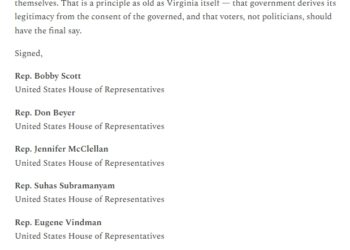 Quietly through malfeasance or simply ignorance, your condominium equity may be eroding daily and there’s simply no legal protection in Virginia. While the Governor reopens rest areas with money he “borrowed” from the Virginia Retirement System, your condominium association may be following the same model in unfunded replacement reserve obligations.
Quietly through malfeasance or simply ignorance, your condominium equity may be eroding daily and there’s simply no legal protection in Virginia. While the Governor reopens rest areas with money he “borrowed” from the Virginia Retirement System, your condominium association may be following the same model in unfunded replacement reserve obligations.
There are states with adequate condominium acts; Arizona and Florida come to mind. Virginia isn’t one. If you live in or own a condominium, what may be your largest investment is vulnerable to one of the most egregious yet legal Ponzi schemes. Associations should fund a replacement reserve to provide the capital for substantial renovations required over the life of the property. Roofs, parking lots, pools and a variety of costly capital assets predictably deteriorate. Virginia requires an engineering study to project these future expenses. It suggests but it neither requires associations to adequately fund a replacement reserve nor sets a standard to measure adequacy. Quite typical of the consumer protection environment in this state: always beware.
Four years ago, I became the President of an association. The boards that preceded had flatly failed their fiduciary responsibilities (for which there is also no adequate remedy). Although a reserve study had been accomplished, it was largely ignored. A funding level was chosen that allowed the annual assessment to remain artificially low. There was evidence that the board was motivated by personal cash flow concerns more than for the future of the common property. Underfunded, recommended capital maintenance and improvements were indefinitely deferred. Of course, failure to maintain or repair today can cost substantially more later.
I began looking at other properties. When I went to open houses in new or established communities, I always asked the agent how much was in the replacement reserve. That was a question predictably met with stunned silence. I approached a local realtor I knew in Democratic circles and discussed this with her. She told me that she thought that this had been addressed in legislation introduced by Delegate Terri Suit (R-Va Beach) and Senator Mary Margaret Whipple (D-31st). Sort of. Now when you get your disclosure package before closing, you are supposed to receive a report about the replacement reserve. As if any of that packet is decipherable to inexperienced buyers. Plus, there is no real standard for that information.
But lenders have standards and this will visit your bottom line at sales time. So, when you enter a property where the lawn is well maintained and the pool water is crystal clear, don’t take that as evidence of good governance, management, or solvency. Ask the question “What does the reserve study say should be in the replacement reserve and how much is in there?” If it is your realtor who can’t tell you, fire her or him. If it is your board or property manager, get a new one. And the same should hold for a Governor and legislature that is leading a state budget Ponzi scheme so that our rest stops can be open.

![[UPDATED with Official Announcement] Audio: VA Del. Dan Helmer Says He’s Running for Congress in the Newly Drawn VA07, Has “the endorsement of 40 [House of Delegates] colleagues”](https://bluevirginia.us/wp-content/uploads/2026/02/helmermontage.jpg)
















